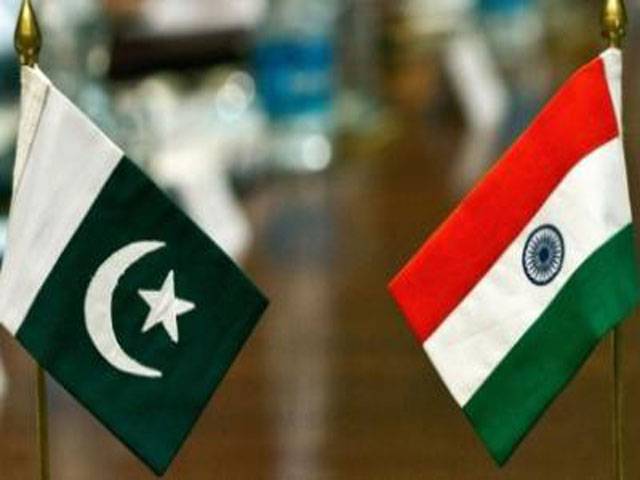LAHORE - The MFN or NDMA status will allow India to export 1,209 items that are currently on Pakistan’s negative list. In return, India will favour Pakistan by reducing its sensitive list under South Asia Free Trade Area (Safta) goods agreement to 100 items from 614, experts said.
The commerce ministry officials, quoting the calculations of benefits of bilateral trade, observed that removal of NTBs by Indian government following the MFN status to it by Pakistan can enhance Pakistan textile exports to $1 billion, cement export to $300 billion, chemicals exports to $200 million and fruitS & veggies export to $300 million. Presently all these products export is very negligible despite high export potential due to duty structure by the Indian government, they added.
They said that India and Pakistan can boost their bilateral trade from the current $2.6 billion a year to an estimated $19.8 billion on a win-win situation.
SAARC CCI VP Iftikhar Malik said that bilateral trade has increased to $2.6 billion, which may soar to $6 billion in the next two years if both countries decide to treat each other equally. Currently, most of the trade between India and Pakistan takes place via Dubai and its volume is estimated at over $4 billion.
He said that bilateral trade between India and Pakistan grew by 24 per cent to $2.6 billion last year, as Islamabad reaped the benefits of trade normalisation more than the gains made by New Delhi.
PRGMEA chief coordinator Ijaz Khokhar said that regional connectivity, resolution of disputes, and strong economic coordination between neighbouring countries can turn the fortunes of South Asia, besides controlling cartelization of manufacturers.
He said that India’s exports to Pakistan in 2012-13 increased by $300 million, a growth of 20 per cent. Total Indian exports to Pakistan stood at $1.84 billion, putting the trade balance in favour of New Delhi.
He said that Pakistan’s exports to India in this period grew by 28 per cent to reach $513 million. He said that calculations using a gravity equation suggest that exports to India are 40 per cent below their predicted potential. Similarly, Pakistan is the key missing market for India, underlining that both countries would gain greatly by normalizing their trade relations.
The source said that India has offered to lower its duties to 7 per cent in a period of six months after Pakistan’s announcement of the MFN for India, which will be further lowered to 5pc in a period of one year.
Similarly, India will reduce its list of sensitive products to 100 items immediately after the announcement of the decision, while Pakistan reciprocates the decision in a period of five years.
However, textile manufacturers are of the view that the notion of Pakistani textile gaining market access is already being negated as India has given huge subsidies post the award of GSP+, resulting in Indian dumping of cotton yarn into Pakistan. India is also in the late stage of signing a free trade pact with the EU which will completely knock the sails of textile exports and the perceived advantages of GSP+.
Therefore, it is of no surprise that confidence of export sectors like textile and agriculture has been shaken. They have now joined the chorus of noise previously echoed only by fibre, pharmaceutical, auto parts, engineering and cement to stop the Commerce Ministry sell-out of an NDMA, like the similarly disastrous ones they signed in 1996 for MFN and for WTO.
Pak-Indian Chamber president and Trade Development Authority of Pakistan newly-appointed chief SM Munir added that three bilateral agreements signed in 2012 in the areas of customs cooperation and mutual recognition of standards.
In 2012, Pakistan had abolished the positive list containing only 1,900 tradable items and enforced a negative list of 1,200 untradable items until both sides agree on absolute trade normalisation. Pakistan was expected to abolish the negative list by December last year, but the deadline was missed due to Indian reluctance to address Islamabad’s concerns about non-tariff barriers and resistance by Pakistan’s automobile and pharmaceutical sectors.
Friday, April 19, 2024
MFN status: Pakistan to abolish negative list
In return, India to reduce number of items on its sensitive list to 100 from 614

Caption: MFN status: Pakistan to abolish negative list
8:09 AM | April 19, 2024
Formula 1 returns to China for Round 5
9:05 PM | April 19, 2024
Germany head coach Julian Nagelsmann extends contract till 2026 World Cup
9:00 PM | April 19, 2024
IMF urges Italy, France to spend less, Germany to loosen purse strings
8:57 PM | April 19, 2024
PM calls UAE president, admires Emirati leadership's response to recent Dubai rains
8:55 PM | April 19, 2024
Church leader calls for including Christians in Gandhara Corridor
8:50 PM | April 19, 2024
A Tense Neighbourhood
April 19, 2024
Dubai Underwater
April 19, 2024
X Debate Continues
April 19, 2024
Hepatitis Challenge
April 18, 2024
IMF Predictions
April 18, 2024
Kite tragedy
April 19, 2024
Discipline dilemma
April 19, 2024
Urgent plea
April 19, 2024
Justice denied
April 18, 2024
AI dilemmas unveiled
April 18, 2024
ePaper - Nawaiwaqt
Advertisement
Nawaiwaqt Group | Copyright © 2024





